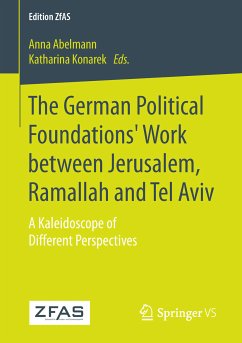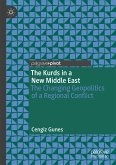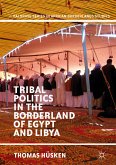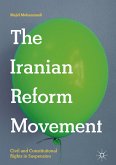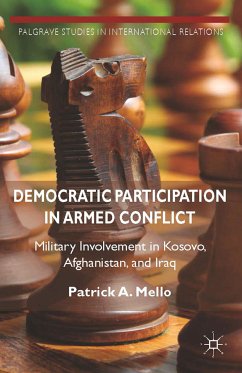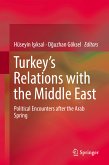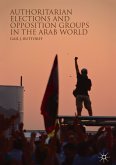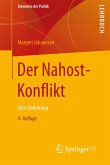Content
· The German political foundations abroad: A collection of historical case studies
· The German political foundations from an anthropological, political science and law perspectives
· The German political foundations between Jerusalem, Ramallah and Tel Aviv: Reflections from within
· The German political foundations between Jerusalem, Ramallah and Tel Aviv: Local Partners and Outsiders Perspectives
Target Groups
· Political scientists
· History scientists
· Humanities researchers
The Editors
Anna Abelmann is Research Associate of the Ruhr University of Bochum. Katharina Konarek is Research Associate of the Haifa Center for German and European Studies at University of Haifa.
Dieser Download kann aus rechtlichen Gründen nur mit Rechnungsadresse in A, B, BG, CY, CZ, D, DK, EW, E, FIN, F, GR, HR, H, IRL, I, LT, L, LR, M, NL, PL, P, R, S, SLO, SK ausgeliefert werden.

